The rapid advancement of Artificial Intelligence (AI) has profoundly impacted various industries, leading to revolutionary changes in automation. As businesses continue to integrate AI into their operations, we see a significant transformation in the way IoT (Internet of Things), legal processes, and organizational workflows are managed. This article will explore the latest trends, updates, and applications related to AI in IoT automation, legal automation, and AI-driven process reengineering.
## **I. AI in IoT Automation: Connecting the Future**
The IoT industry is booming, with billions of connected devices generating vast amounts of data daily. According to Statista, the number of connected devices worldwide is expected to reach 30.9 billion by 2025. With this surge in data comes the challenge of processing and analyzing it effectively. This is where AI in IoT automation becomes a game-changer.
AI can enhance IoT systems by enabling real-time data analysis and decision-making, significantly improving the efficiency of automated processes. For instance, smart sensors powered by AI algorithms can predict equipment failures before they occur, ultimately reducing downtime and maintenance costs. Companies like General Electric are already using AI-driven IoT solutions to streamline operations across their industrial assets, showcasing a successful implementation of this technology.
The integration of AI with IoT also paves the way for personalized user experiences. Businesses can use AI to analyze data from connected devices to understand consumer preferences better and tailor their offerings accordingly. For example, smart home devices can learn user habits and adjust settings automatically, optimizing energy consumption and enhancing comfort.
Moreover, AI can enhance security protocols in IoT networks. As IoT devices become more widespread, the risk of cyberattacks increases. AI algorithms can monitor network traffic in real-time to detect anomalies and respond to threats more effectively than traditional security systems. This proactive approach is crucial in a landscape where data breaches can have devastating consequences.
## **II. AI in Legal Automation: Streamlining Legal Processes**
The legal industry is undergoing significant transformations due to AI adoption. Traditionally seen as one of the most resistant sectors to technology adoption, law firms are now leveraging AI tools to automate repetitive tasks and improve efficiency. Legal automation involves the use of AI-driven software to manage, analyze, and streamline various legal processes.
One of the most notable applications of AI in legal automation is contract management. Companies like LawGeex utilize AI to review contracts, ensuring compliance and identifying potential risks. This automation not only saves time but also reduces human error, ultimately leading to more accurate contract analyses. Legal professionals can, therefore, focus on higher-value tasks such as negotiation and strategy formulation.
Another key area of AI in legal automation is legal research. Traditional legal research methods can be labor-intensive and time-consuming. AI-driven research tools, like ROSS Intelligence and Casetext, allow lawyers to find relevant case laws and legal precedents more efficiently. By utilizing natural language processing (NLP), these tools can understand queries in plain language, making it easier for legal practitioners to access crucial information.
AI also plays a pivotal role in predictive analytics within the legal field. By analyzing historical data, AI algorithms can predict litigation outcomes based on various factors. This capability allows legal teams to devise strategies better aligned with probable results, ultimately improving their chances of success in court.
Despite the numerous advantages, the adoption of AI in legal automation does raise ethical concerns. Issues surrounding data privacy, algorithm bias, and the implications of replacing human judgment with AI are still subjects of ongoing debates. For legal professionals, it will be vital to navigate these considerations as they integrate AI solutions into their practices.
## **III. AI-driven Process Reengineering: Enhancing Organizational Efficiency**
In the ever-changing business landscape, organizations are under pressure to become more agile and efficient. Process reengineering is a fundamental approach that entails analyzing and redesigning workflows to optimize performance and reduce costs. The incorporation of AI into process reengineering is leading to unprecedented improvements in how businesses operate.
AI-driven process reengineering focuses on automating repetitive tasks and optimizing decision-making. For instance, companies can use AI to analyze vast amounts of process data to identify bottlenecks and inefficiencies. By implementing machine learning algorithms, organizations can continuously assess their processes, making real-time adjustments to stay aligned with business objectives.
A prime example of this in practice is the application of AI in supply chain management. AI algorithms can predict demand based on historical consumption data, leading to better inventory management and reduced costs. Companies like Amazon leverage AI technologies to streamline their supply chains, allowing them to offer faster delivery times and enhanced customer satisfaction.
Furthermore, AI enables businesses to foster a culture of innovation and adaptability. By automating routine tasks, organizations empower employees to focus on strategic initiatives that drive growth and competitive advantage. This shift not only fosters creativity but also enhances employee engagement as teams can contribute meaningfully to projects that require critical thinking and problem-solving.
Despite these benefits, organizations must approach AI-driven process reengineering cautiously. The transition to AI-based systems requires a strong change management strategy to address potential employee resistance and ensure proper training. Additionally, businesses must consider the ethical implications of AI usage, particularly when it involves sensitive data or decision-making processes.
## **IV. Industry Use Cases: Real-World Applications of AI in Automation**
The applications of AI in automation aren’t limited to any single industry; numerous sectors are reaping the benefits of these cutting-edge technologies. By investigating several real-world use cases, we can better understand the transformative potential of AI-driven solutions.
1. **Manufacturing**: Many manufacturing companies are adopting AI in IoT automation to monitor machinery health and predict maintenance needs proactively. Companies like Siemens have integrated AI systems into their production lines, enhancing efficiency and reducing operational costs.
2. **Finance**: In the finance sector, AI-driven legal solutions are being used for compliance, risk management, and fraud detection. For instance, companies like HAMLITZ utilize AI to monitor transactions in real time, quickly identifying and mitigating fraudulent activities.
3. **Healthcare**: AI’s role in healthcare automation has become increasingly vital, particularly in patient management and diagnosis. Tools like IBM Watson Health leverage AI to analyze medical records and suggest treatment options, improving patient outcomes and operational efficiency in hospitals.
4. **Retail**: AI is revolutionizing the retail industry through personalized marketing and inventory management. Retailers like Walmart employ AI algorithms to analyze purchase data, optimizing stock levels and tailoring marketing campaigns to resonate with target customer segments.
5. **Human Resources**: AI-driven automation is increasingly popular in HR departments, particularly for recruitment. Tools like HireVue use AI to streamline candidate selection by assessing video interviews and providing insights into potential hires, drastically reducing the time-to-hire.
## **V. Conclusion: Embracing the Future with AI-driven Automation**
The integration of AI into IoT automation, legal automation, and process reengineering is facilitating unprecedented changes across industries. As organizations begin to embrace these technologies, they unlock immense potential for efficiency, reduced costs, and enhanced decision-making.
However, the successful implementation of AI-driven solutions requires careful consideration of ethical implications, data privacy, and change management strategies. As we continue to navigate this rapidly evolving landscape, organizations that embrace AI innovation will be better positioned to thrive in an increasingly competitive business environment.
In conclusion, the future of automation lies in leveraging AI capabilities. Businesses, irrespective of their sectors, should stay abreast of these developments and explore ways to implement AI to foster growth and competitiveness. By doing so, they will not only optimize their processes but also drive industry advancements that benefit society as a whole.
### Sources:
– Statista (2023): Connected Devices Worldwide – Statistics & Facts
– LawGeex: AI-Powered Contract Review
– ROSS Intelligence: Legal Research Reimagined
– Amazon: The Future of Supply Chain Management
– IBM Watson Health: AI in Healthcare Automation































